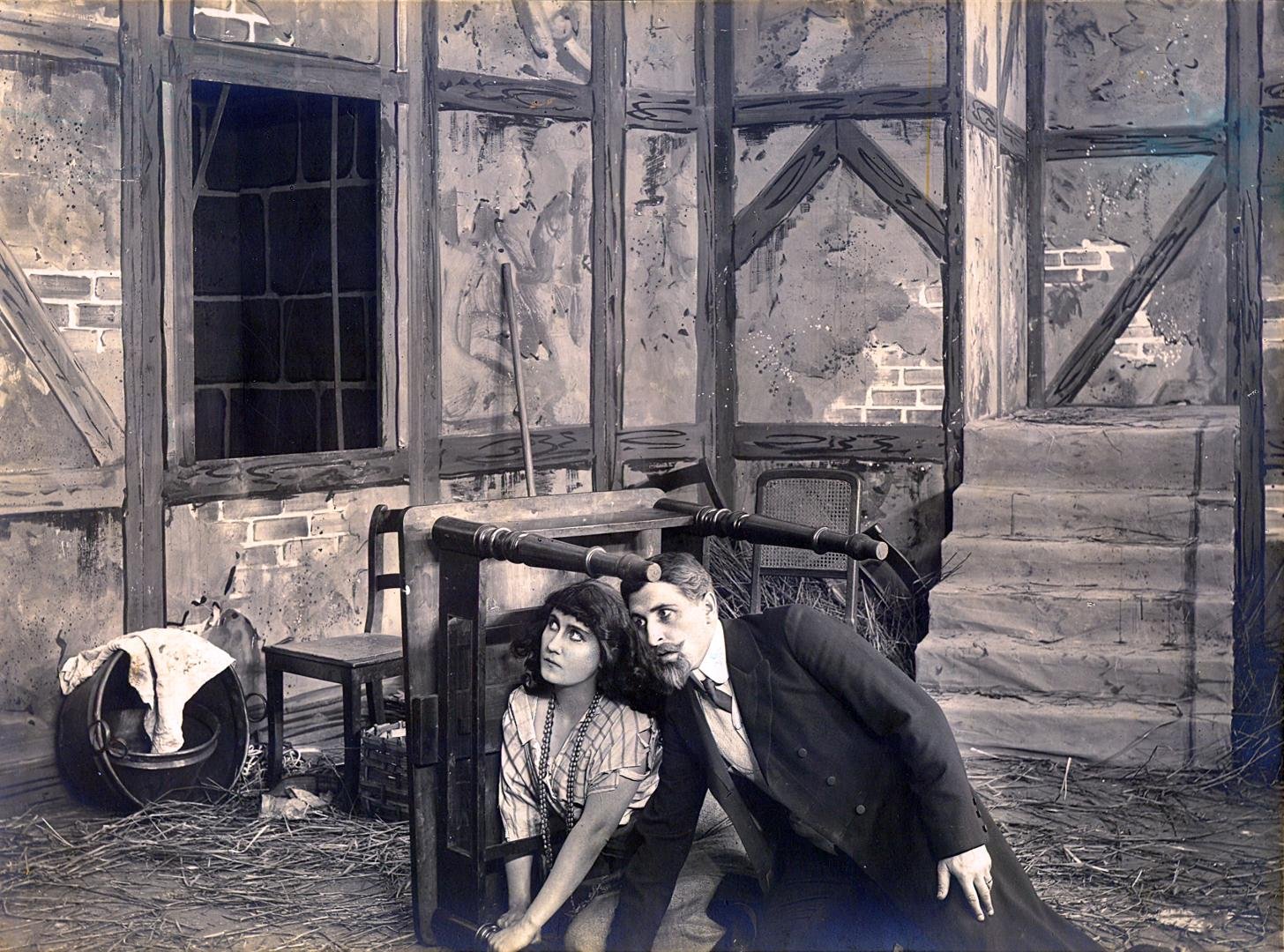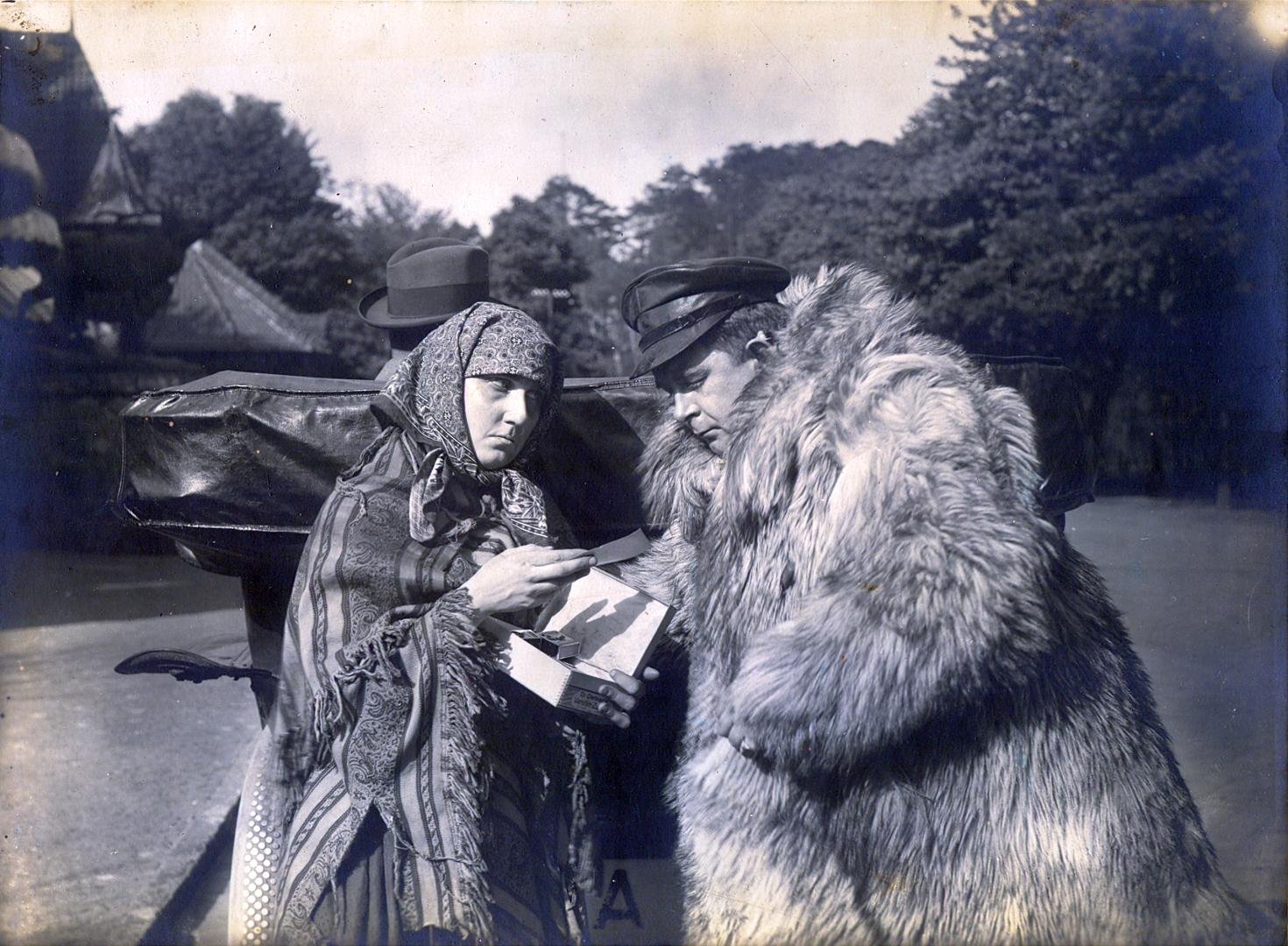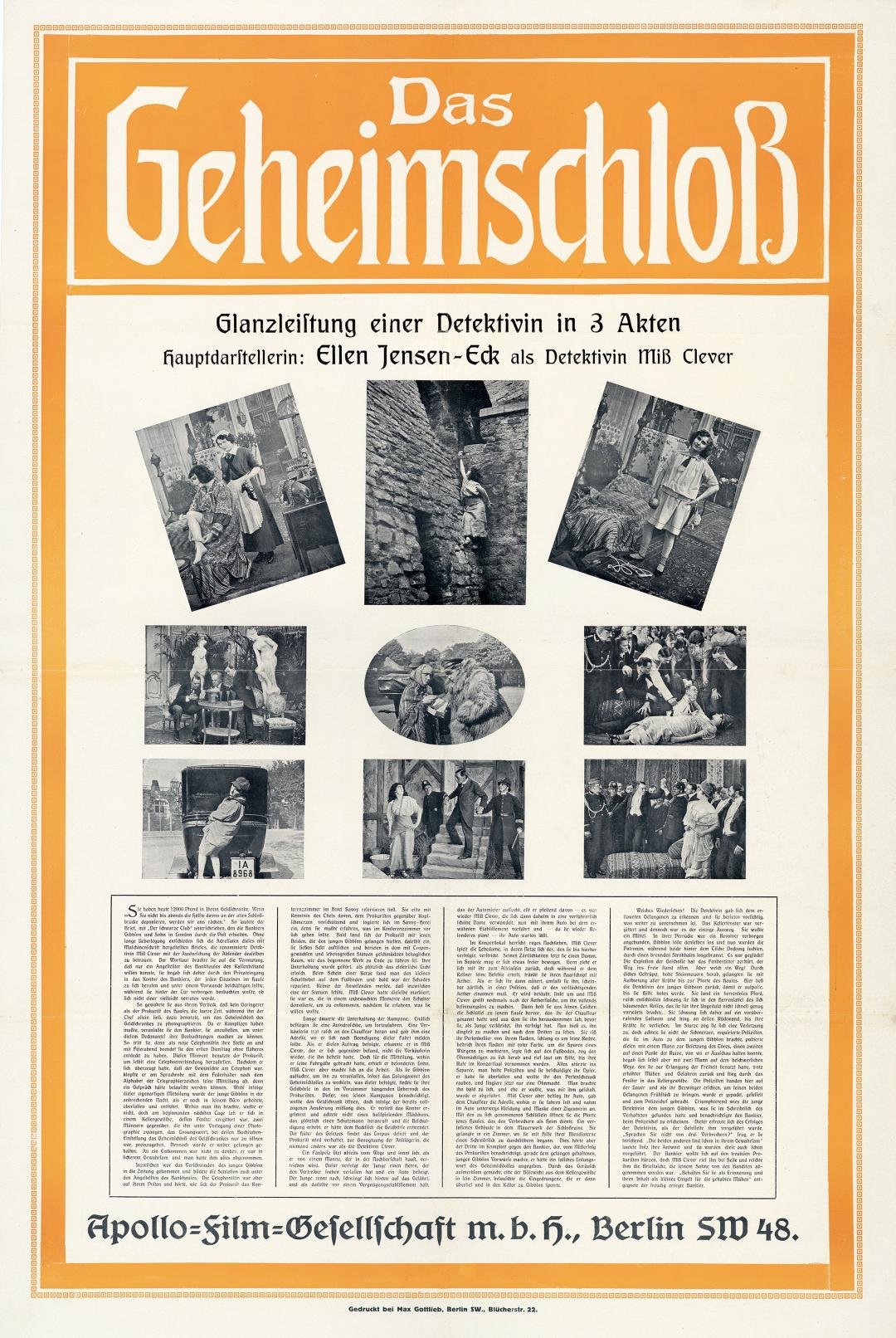Menu Biuletynu Informacji
THE SECRET CASTLE AKA MISS CLEVER VERSUS THE “BLACK HAND”

THE SECRET CASTLE AKA MISS CLEVER VERSUS THE “BLACK HAND”
The Secret Castle aka Miss Clever versus the “Black Hand”
(Das Geheimschloß aka Miss Clever contra de ,,Zwarte Hand”) (Appollo – Film, Germany, 1914)
Dir.:Unknown, script: Unknow
Cast: Ellen Jensen-Eck (Miss Clever)
DCP, 54’, Desmetcolor, intertitle/subtitle: NL/PL, source: The Desmet Collection, EYE
Gibson, a banker, is being blackmailed by the mysterious Black Hand gang, who have kidnapped his son and are now demanding the codes to the bank’s safes in exchange for the boy’s release. The financier hires private detective Miss Clever to find the criminals. The young woman demonstrates extraordinary intelligence, courage and resourcefulness, and her sometimes surprising costumes confirm her status as a master of disguise.
This is a feminist version of the detective story with an extraordinary heroine, going beyond the previous models of femininity shown on film which until that point had been dominated by the opposing types of the vamp and the innocent young girl.
The film came about in the wake of the popularity of various detective series, including the adventures of Sherlock Holmes, but the roots of Miss Clever as a female detective actually date back to the literature of the first half of the nineteenth century. It was then – long before Holmes – that the first female fictional detectives were born, like the eponymous heroine of Catherine Crowe's novel "The Adventures of Susan Hopley" (1841), Mrs. Paschal from "Revelations of a Lady Detective" (1860) by W.S. Hayward or Miss Gladden from "The Female Detective" (1864) by Andrew Forrester.
For the German film studio Apollo, "The Secret Castle" ("Das Geheimschloss" was the original title) was a prestigious production, potentially initiating a whole series of female detective films; hence the extensive advertising for the film with an illustrated booklet and colourful attractive posters. Unfortunately, the times were not right for the film and the overly suggestive costumes worn by the heroine. The censors therefore intervened, first removing one scene and then in 1916 – "for the time of the war" – banning screenings of the film outright.
Fortunately, the film, distributed by Jean Desmet with a changed title, was successful in the Netherlands (where a copy was preserved in a private collection). And although the series was not continued, the wave of popularity resulted in the 1916 Danish adventure film with Ellen Jensen-Eck entitled "Submarine" ("Undervandsbaaden", 1914), which was advertised as the further adventures of Miss Clever. (KW)
Translated by: Paweł Włochacz
April 7 | 18:00 | Iluzjon cinema
live music: Joanna Duda





